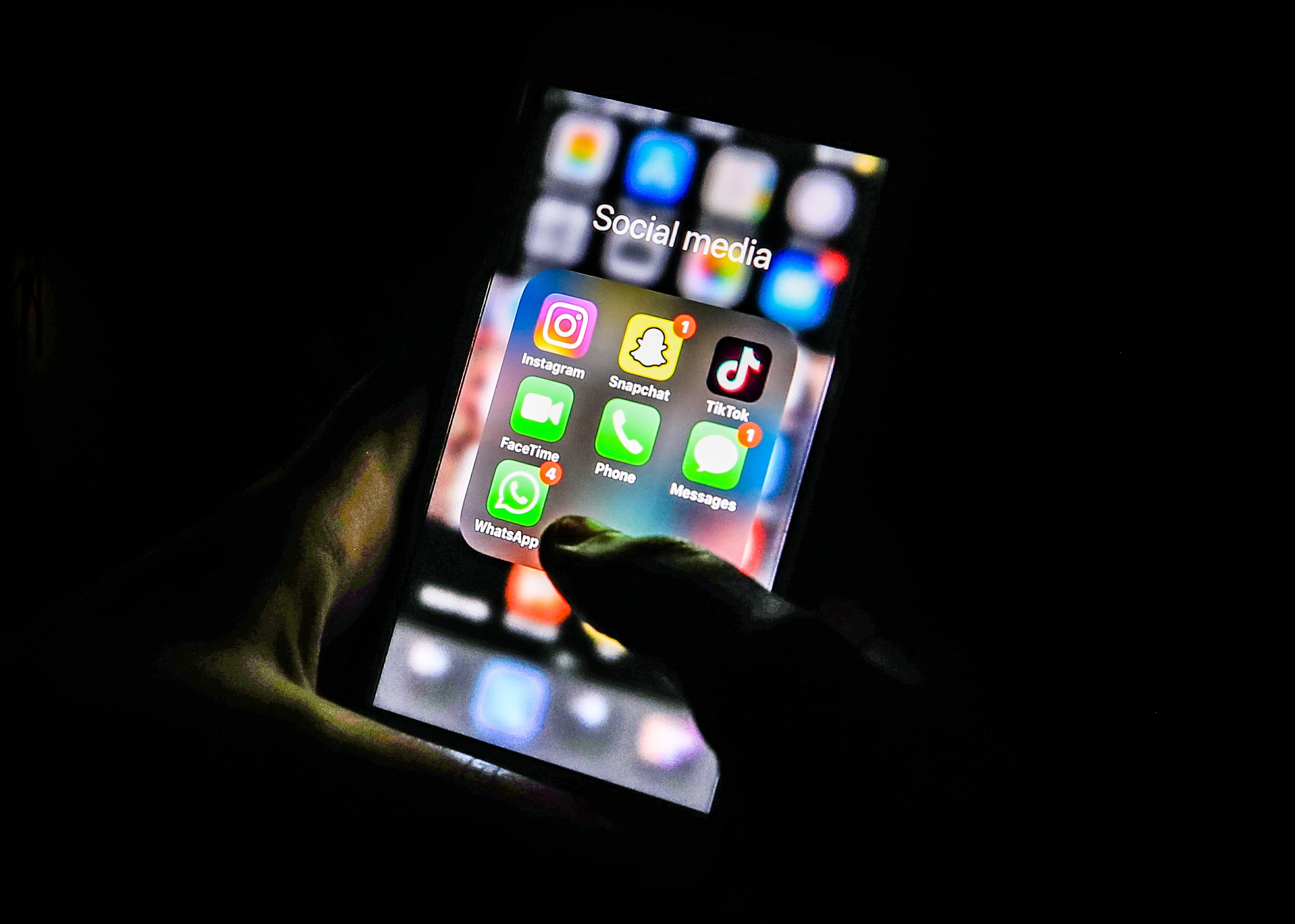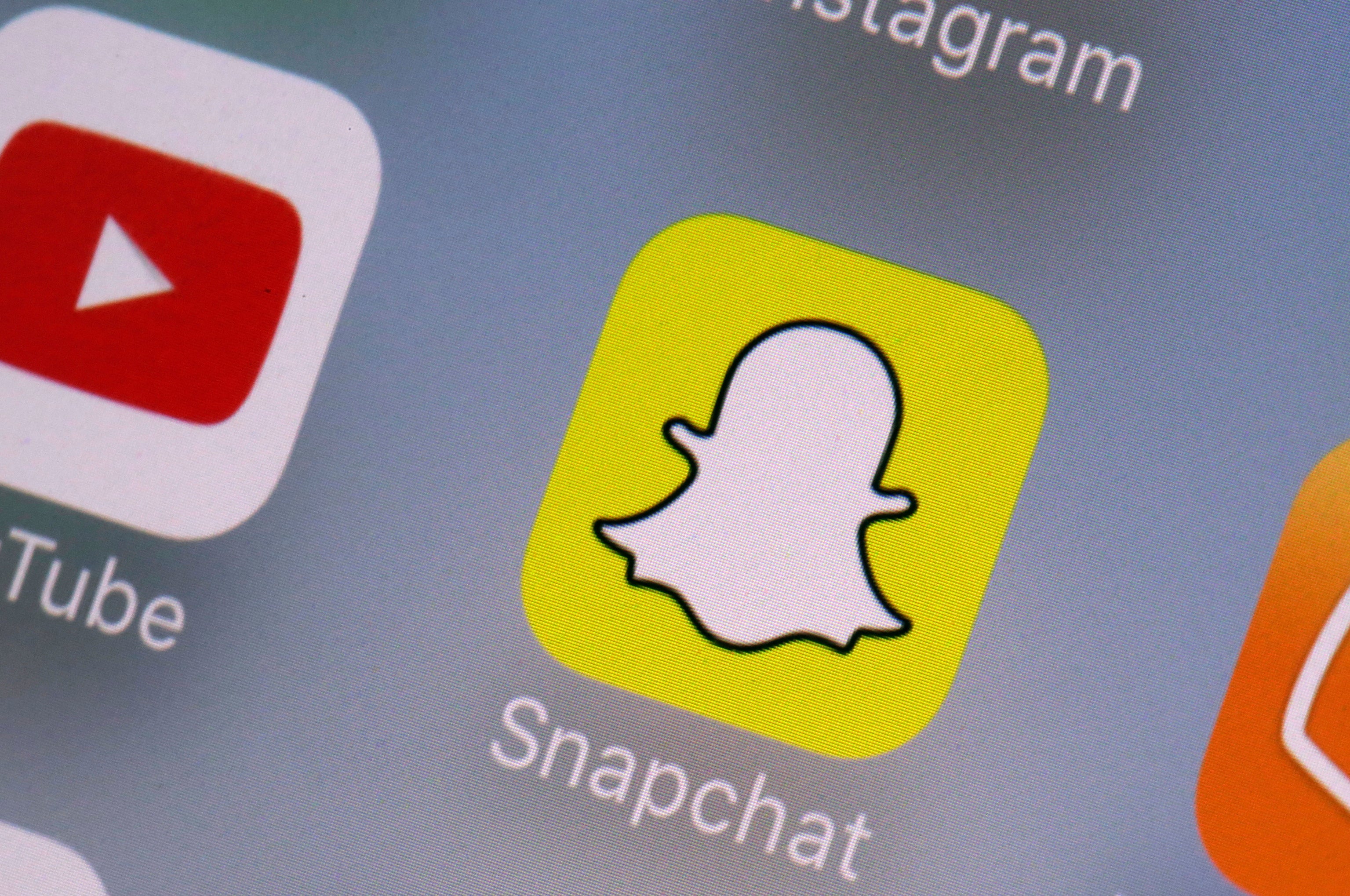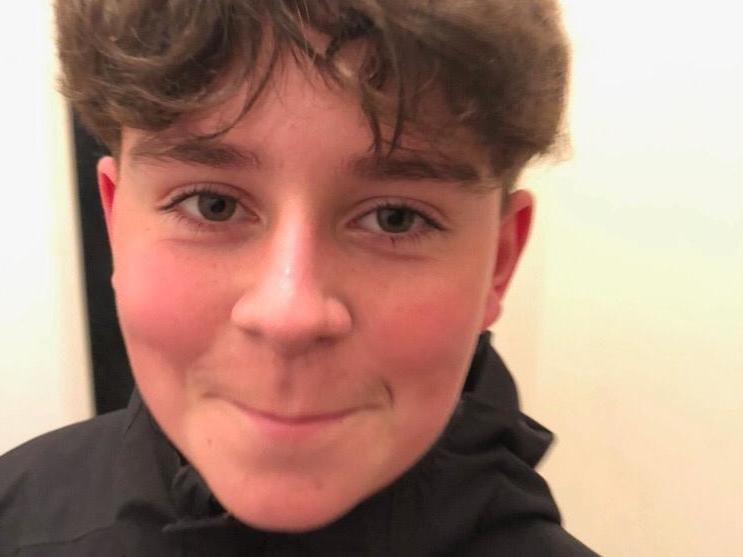One in five 13-14-year-olds have seen drugs being sold on social media
Exclusive: Over a third of teenagers have seen drugs sold online including cocaine and ecstasy

One in five 13-14-year-olds in England have seen drugs sold on social media, a new survey has shown.
The survey findings, shown exclusively to The Independent, show school children as young as 13-years-old are seeing drugs - including class A substances cocaine and MDMA - being sold on social media platforms.
The survey, by drug education charity, the Daniel Spargo-Mabbs Foundation (DSM), explored online drug interactions among young people under 18. Of the 1,919 young people who responded to the March 2021 survey, more than a third (35 per cent) overall had seen drugs sold online. Broken down by age, 58 per cent of 18-years-olds have seen drugs sold online, while the figure is 44 and 33 per cent for 16-17-year-olds and 15-year-olds, respectively.
Fiona Spargo-Mabbs, founder of DSM Foundation, said the findings of the survey are not surprising but concerning that the proportion of young people seeing drugs online is increasing. “I know the issue isn’t going to go away until more can be done to address it,” Ms Spargo-Mabbs said.
She added: “Social media platforms provide, however unwillingly from the platforms’ perspectives, an ideal space for drugs to be bought and sold, for so many reasons, not least because they give dealers easy access to thousands and thousands of young people, numerically the biggest age group using drugs.
“The findings of our survey this year have shown young people’s exposure to drugs has increased, from 20 per cent of 13-15 year-olds in 2020 to 25 per cent in 2021 seeing drugs being sold.”

According to the survey, Snapchat was the leading platform where under 18s saw drugs being sold online followed by Instagram and TikTok. Cannabis and cannabis edibles were among the drugs most frequently seen sold online but cocaine and party drug MDMA/ecstasy is also regularly spotted for sale by young people.
A spokesperson from Snapchat said: “We have the greatest respect for the Daniel Spargo-Mabbs Foundation and their work to raise awareness of the danger of drugs. Buying or selling drugs on Snapchat is strictly against our rules.”
Snapchat added that it actively bans accounts with search terms associated with drug dealing as well as using tech to identify drug imagery and review content before its posted on public sections of the platform.
The survey also found that almost half of young people (43 per cent) have never reported the drugs they’ve seen sold online with not being bothered, not feeling it would make a difference and fears of being labelled a snitch the top reasons for inaction.
13-year-old Carson Price was found unconscious in a park in Ystrad Mynach, near Caerphilly, in April 2019 after having taken an ecstasy tablet. He was later pronounced dead at hospital and a coroner ruled he died as a result of taking “excessive” amounts of ecstasy.
Carson Price from Caerphilly in Wales died in 2019 after taking ecstasy pills bought from Snapchat from another teenager. Carson’s mother Tatum Price, told The Independent that parents don’t know how serious online drug dealing is.

“Before it happened to Carson, we were a normal working-class family, we’re kind of blasé to it [online drug dealing]. You don’t see that world. If you’re not around that culture, it’s quite an eye-opener how young kids are susceptible to it,” Ms Price said. “You have drugs talks with children but I don’t think we’re aware of how bad it is, there are even drop-offs happening at schools, I think there’s so much being overlooked, she added.
A 15-year-old boy pled guilty to supplying Carson with class A drugs. “It’s life-changing losing a child. I think it could have been prevented somehow, he shouldn’t have been able to get it that easily, not in a million years,” Ms Price said.
Deputy Chief Constable Jason Harwin, drugs lead for NPCC, said the numbers of people selling drugs online exceeds the number of available officers making tackling the issue extremely challenging.
“We want to identify those supplying online and arrest and put them before the courts but then at the same time we want to stop our young people taking drugs in the first place so it’s less visible, less appetising and making sure organised crime is not profiting from it,” Mr Harwin said.
He added that building relationships with social media platforms was a crucial part of tackling online drug dealing.
“With social media we work with them to understand some of the langauge, so we work with their search engines to see the language that’s referred to in terms of drugs so they’ve got that education to know what to look for to take stuff down using artificial intelligence,” Mr Harwin said.
Mr Harwin called on more social media platforms to take responsibility for drug dealing on their platform and welcomed the Online Safety Bill as an additional measure to enforce this. He also stressed the importance of law enforcement and social media working with education providers and charities to tackle the issue and protect young people.
“There needs to be much more focus on the risks of exposure to drugs on social media included in online safety lessons and information, as well as in drug education in schools, and this needs to reach parents as well,” Ms Spargo-Mabbs said.
Ms Spargo-Mabbs insisted that parents needed support to feel empowered when dealing with their children’s life on social media.
Tara Hopkins, EMEA head of public policy for Instagram said a mixture of technology and human review is used to remove content “as quickly as possible” with 95 per cent of drug sales content between April and June removed before being reported.
“We’re constantly working to get better at detection, and in the last few weeks we’ve started directing people who search for drug-related content on Instagram to Talk to Frank, an organisation that provides honest information about drugs. We’re working closely with law enforcement and youth organisations to help support our community and keep drug sales off Instagram,” Ms Hopkins added.
A spokesperson from TikTok said: “The safety and wellbeing of our community, particularly our youngest members, is a top priority. Our Community Guidelines make clear that we do not allow the depiction, promotion, or trade of drugs or other controlled substances. The trade of tobacco and alcohol products is also prohibited on the platform."
Join our commenting forum
Join thought-provoking conversations, follow other Independent readers and see their replies
Comments
Bookmark popover
Removed from bookmarks